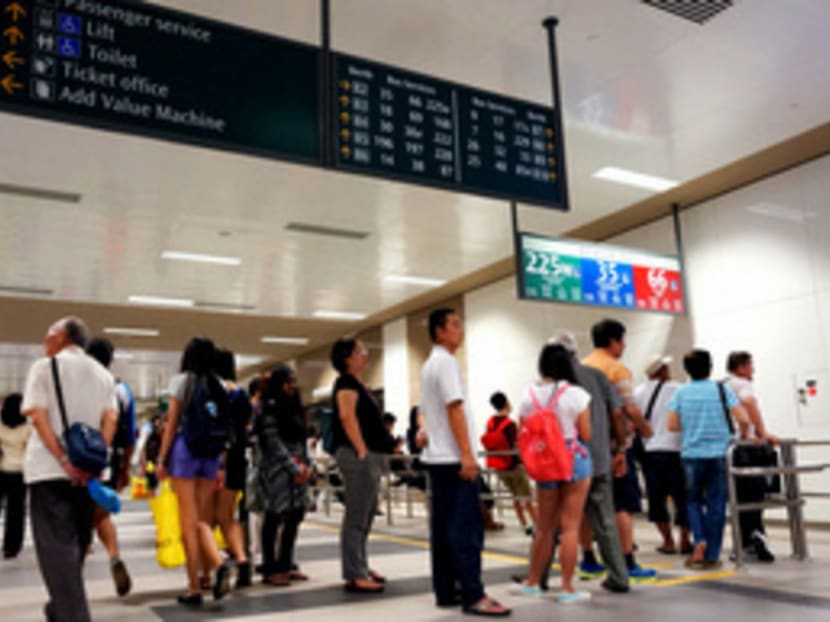Increases expected as costs still weigh on operators, say experts
SINGAPORE — Concession schemes will buffer many from the fare increase announced yesterday, but those left in the cold hope to see a reprieve in coming years.
SINGAPORE — Concession schemes will buffer many from the fare increase announced yesterday, but those left in the cold hope to see a reprieve in coming years.
Experts, however, felt the latest hike is expected, given that bus and train operators are still facing considerable costs while under pressure to improve their services.
While Transport Minister Lui Tuck Yew said on Monday that commuters could see fares fall by about 1 percent next year because of a drop in energy prices last year, energy costs are not the biggest contributor to fare rises, said Nanyang Technological University transport economist Walter Theseira.
Fares would have fallen by 0.6 per cent this year because of the drop in energy prices in 2013, but an increase of 3.4 per cent was rolled over from the previous exercise, resulting in fares rising 2.8 per cent this year.
Commuters TODAY spoke to said while fares had risen, the quality of service had yet to catch up. While increases are marginal, they add to monthly expenditure over time, they said.
Mrs Angela Ng, a 50-year-old housewife, said there are times when she has to wait for a bus for 30 minutes. “The trains still break down every now and then,” she said. Administrative associate Wong Anqi, 23, added that two consecutive years of increases were “too much”.
SIM University’s urban transport management expert Park Byung Joon said bus and trains operations are not making “huge money”. “We are not in the government contracting model(for buses) yet, we are still in the operating mode (where) the expenditure has to be recovered from fares,” he added.
Dr Theseira said a large part of the increase year to year is usually due to the rise in labour cost and other operating expenses, while fuel cost is not a “large explanation” for the increase in prices over time.
While energy prices have been high over the past few years, they have also been stable. “Usually, year on year, public transport becomes more efficient, so the fuel cost component will be dropping over time,” he said.
National University of Singapore transport researcher Lee Der Horng said while no one likes to see a hike, there is a price to pay if Singaporeans want to see a better public-transport system. “And I think the key thing in this whole exercise is that the authority or Government must make sure fares are affordable, especially to low-wage workers, minority groups, senior citizens and students,” he added.
Member of Parliament Seng Han Thong (Ang Mo Kio GRC), who is deputy chair of the Government Parliamentary Committee (GPC) for transport, said the middle-income group would be most affected by the fare hike. However, as buses and trains improve connectivity, it would benefit this group.
GPC chairman Cedric Foo (Pioneer) added that those who “fall between the cracks”, such as the jobless, could apply for public-transport vouchers.
MP (Mountbatten) Lim Biow Chuan noted that a person who takes two public-transport trips a day would see increases of about S$1 a month. “It’s still bearable,” he said.







